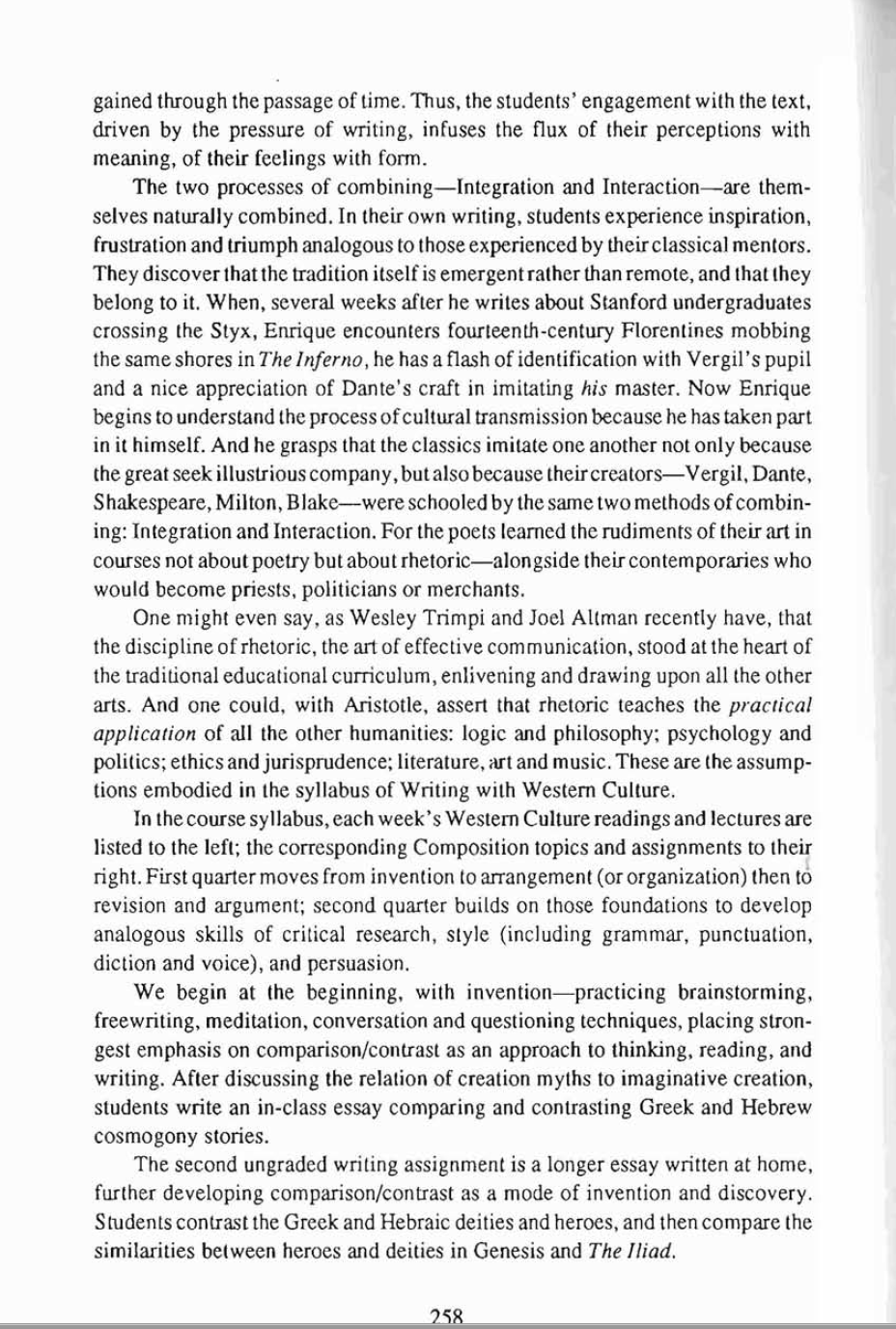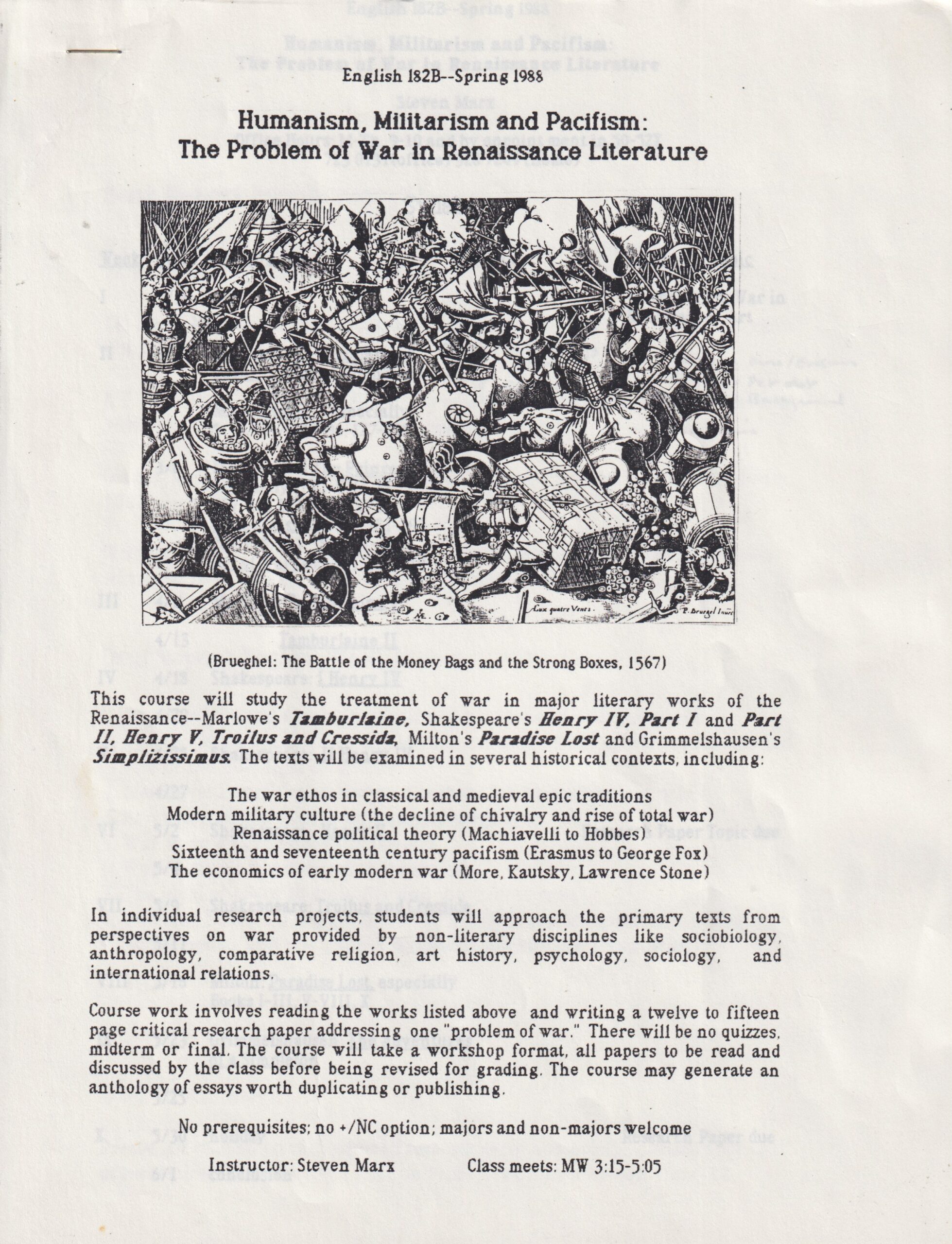Holy War in Henry Fifth
Monday, December 18th, 1995Published in Shakespeare Survey 48, Nov./Dec. 1995, reprinted in Shakespearean Criticism Gale Publications, 1996
Holy War in _em_Henry Fifth__em_Published in Shakespeare Survey 48, Nov./Dec. 1995, reprinted in Shakespearean Criticism Gale Publications, 1996
Holy War in _em_Henry Fifth__em_Journal of the American Academy of Religion 1994
Northrop Fryes BiblePublished in The Core and the Canon : a national debate, September 1, 1993, pages 256-264. Edited by L. Robert Stevens, G.L. Seligmann and Julian Long (Denton, TX: University of North Texas Press.)

Renaissance Quarterly Spring 1992
Shakespeares Pacifism
Sisyphus’ setting, with its flaking rock and its hot barren landscape is the last of a long series of images of hostile wastelands we have been contemplating. Barren deserts, steamy jungles, blasted battlefields, rocky islands, polar ice floes, gothic swamps, wind-swept marshes, blackened cities make up the backdrop of much modern European literature–a setting appropriate to the period that brought us World War I and II and which may yet bring us nuclear winter. Most of these demonic landscapes are symbolic, representing as we have learned, the burnt-out quality of the modern: its loss of spiritual faith, loss of intellectual and moral clarity, loss of aesthetic pleasure, loss of belief in society, the family, the self.
But this symbolic imagery of physical desolation has a literal meaning as well, one that we have not encountered much in the works we discussed. Western culture, and probably world culture as well, has been involved since the beginning of the modern period not only in its own self- destruction, but in the destruction of the earth, the environment which has bred and nursed it. In “From a Plane,” a short poem included in your miscellany of poetry, Denise Levertov recognizes from the air “the great body…torn apart/ raked and raked by our claws” –treated by us like Lear and Gloucester by their ungrateful children. (more…)
Studies in English Literature 15 (1985)